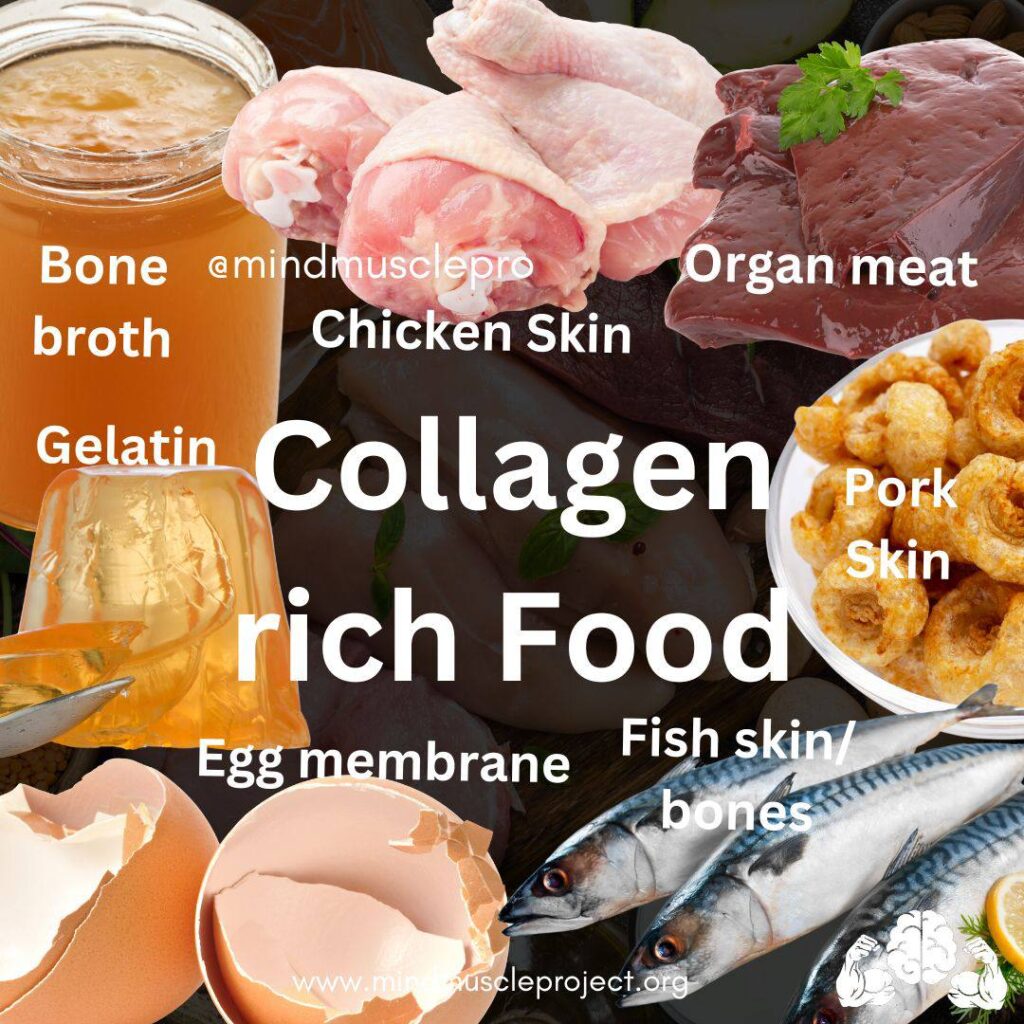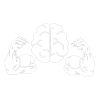- What is Collagen?
- Types of Collagen and Their Functions
- Signs of Collagen Deficiency
- How Your Body Makes Collagen
- Three Strategies to Maintain Healthy Collagen Levels
- Collagen for Vegetarians: What to Know
- Why Balance Collagen and Muscle Meat Protein Matters
- The Importance of Collagen Beyond Beauty
- Final Thoughts
Collagen is the most abundant protein in the human body, often referred to as the “glue” that keeps everything together. From your skin’s elasticity to your bones’ strength, collagen plays a vital role in maintaining your overall health and vitality.
In this comprehensive guide, we’ll explore what collagen is, why it’s essential, how to spot deficiencies, and actionable strategies to ensure you have optimal collagen levels in your body.
What is Collagen? #
- The Foundation of Your Body: Collagen is a structural protein that gives firmness and elasticity to your skin, strength to your nails and bones, and resilience to cartilage, tendons, muscles, gut lining, and blood vessels.
- The Origin of the Name: The word “collagen” comes from the Greek word “kolla,” meaning glue, a fitting description of its role in holding our body together.
- The Building Blocks: Collagen is primarily composed of three amino acids intertwined together:
- Glycine
- Proline
- Arginine/Hydroxyproline
Types of Collagen and Their Functions #
Collagen isn’t a one-size-fits-all protein—it comes in various forms, each serving specific functions:
- Type I Collagen:
- Found in: Skin, hair, nails, tendons, ligaments, and bones.
- Known for: Its incredible strength and structural support.
- Type II Collagen:
- Found in: Cartilage.
- Known for: Supporting joint health and flexibility.
- Type III Collagen:
- Found in: Arteries, intestines, and the uterus in women.
- Known for: Providing elasticity and structural support to softer tissues.
Signs of Collagen Deficiency #
Collagen production naturally declines as we age, but other factors like poor diet, stress, and lifestyle habits can accelerate this process. Here are common signs that you may have a collagen deficiency:
- Joint pain or arthritis.
- Wrinkles or sagging skin.
- Brittle nails.
- Hair thinning or hair loss.
- Gut issues like leaky gut syndrome.
- Slower wound healing.
- Decreased bone density.
How Your Body Makes Collagen #
Your body can produce its own collagen if it gets adequate building blocks (amino acids) and essential cofactors. However, for optimal collagen production and reduced breakdown, specific nutrients are crucial, including:
- Vitamin C: Essential for collagen synthesis.
- Copper, Zinc, and Manganese: Support enzymatic processes involved in collagen formation.
- Hyaluronic Acid, Glucosamine, and Chondroitin: Help maintain collagen-rich tissues, particularly cartilage.
Three Strategies to Maintain Healthy Collagen Levels #
1. Eat Foods Rich in Collagen and Amino Acids #
Incorporating collagen-rich foods can directly supply your body with its building blocks.
Best Sources of Collagen:
- Bone broth: Rich in Type I and III collagen, along with additional nutrients.
- Chicken or fish skin: A natural source of collagen.
- Organ meats: Packed with glycine and proline, two primary amino acids in collagen.
- Gelatin: A processed form of collagen found in many recipes.
- Collagen supplements: Marine (fish) or bovine (beef) sources.
2. Eat Foods Rich in Nutrients That Support Collagen Production #
To maximize your body’s natural ability to produce collagen, include foods rich in:
- Vitamin C: Citrus fruits, bell peppers, and strawberries.
- Copper: Shellfish, nuts, and seeds.
- Zinc: Pumpkin seeds, lentils, and eggs.
- Manganese: Whole grains, nuts, and leafy greens.
3. Avoid Foods and Habits That Damage Collagen #
Certain foods and lifestyle factors can accelerate collagen breakdown:
- Excess Sugar/Carb Consumption: Promotes glycation, which damages collagen.
- Seed Oils: High in omega-6 fatty acids, which increase inflammation.
- Smoking and Alcohol: Reduce collagen production and accelerate aging.
- Excess Sun Exposure: UV rays break down collagen in the skin.
- Micronutrient Deficiencies: Lack of vitamins and minerals weakens collagen synthesis.
- Poor Sleep and Stress: Disrupts the body’s natural repair processes.
Collagen for Vegetarians: What to Know #
There are no vegetarian sources of collagen, as collagen is derived from animal products. However, vegetarians can support their body’s ability to produce collagen by consuming:
- Protein-rich plant foods: Legumes, quinoa, and tofu.
- Collagen-supporting nutrients: Focus on foods rich in vitamin C, zinc, and copper.
- Collagen supplements: Marine or bovine-based supplements are an option if dietary restrictions allow.
Why Balance Collagen and Muscle Meat Protein Matters #
Think of muscle meat as the bricks and collagen as the mortar that holds the structure together. Consuming too much muscle meat without balancing it with collagen-rich foods can lead to an imbalance in amino acids, particularly glycine and methionine. For optimal health, it’s essential to include collagenous proteins alongside muscle meat in your diet.
The Importance of Collagen Beyond Beauty #
While collagen is often marketed as a beauty product, it is far more than that. Collagen is essential for:
- Skin elasticity and youthful appearance.
- Joint health and mobility.
- Bone density and strength.
- Gut lining integrity and digestive health.
- Overall structural integrity of your body.
Final Thoughts #
Collagen is not just about looking younger—it’s about feeling stronger, moving better, and living healthier. Though your body can produce collagen, age and lifestyle factors can diminish its levels, impacting your quality of life.
If you want to look and feel younger, more resilient, and healthier, start by incorporating collagen-rich foods or supplements into your diet and supporting your body’s ability to produce collagen naturally.





